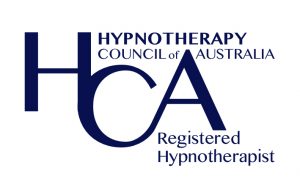
Imposter syndrome is a psychological phenomenon in which individuals doubt their abilities, feeling like frauds despite evident success and competence. It often manifests as a persistent fear of being “found out” or exposed as a “fake.” This internal struggle can hinder personal and professional growth, lead to stress, anxiety, and depression, and prevent individuals from achieving their full potential. While various therapeutic approaches exist to tackle imposter syndrome, hypnotherapy has gained attention for its ability to address the underlying subconscious patterns that contribute to these feelings of inadequacy.
Understanding Imposter Syndrome
Before delving into how hypnotherapy can help, it’s essential to understand imposter syndrome’s roots. This phenomenon often stems from deep-seated beliefs and conditioning, frequently originating in childhood. For instance, individuals who grew up in highly competitive environments or were subject to constant comparisons might internalise beliefs that their best efforts are never enough. These beliefs can lead to a distorted self-perception, causing people to discount their achievements and live in constant fear of failure.
Imposter syndrome is not necessarily tied to actual ability or competence. Many high-achieving individuals, including professionals, academics, and creatives, experience these feelings. Traditional therapeutic approaches can be effective, but hypnotherapy offers a unique pathway to change these subconscious beliefs.
How Hypnotherapy Works
Hypnotherapy involves guiding individuals into a state of deep relaxation and focused attention, known as a trance state. In this state, the mind becomes more open and receptive to suggestions. Contrary to common misconceptions, hypnotherapy does not involve losing control or being manipulated. Instead, it allows individuals to access the subconscious mind, where many automatic thoughts, beliefs, and behaviors originate.
During hypnotherapy sessions, a trained hypnotherapist uses various techniques to help the individual identify and reframe negative beliefs. The subconscious mind is a reservoir of memories and experiences that shape our self-perception. By accessing this part of the mind, hypnotherapy can help uncover the root causes of imposter syndrome, such as past experiences, conditioned beliefs, or self-sabotaging thought patterns.
Combating Imposter Syndrome Through Hypnotherapy
Here’s how hypnotherapy can effectively address imposter syndrome:
Identifying Core Beliefs: Hypnotherapy helps uncover the deep-seated beliefs that fuel imposter syndrome. In a trance state, individuals can recall memories or experiences that contributed to their feelings of inadequacy. For example, they might remember instances where they were made to feel inferior, criticised harshly, or told that their efforts were insufficient. By bringing these experiences to the surface, individuals can start to understand the origins of their self-doubt.
Reframing Negative Thoughts: Once these core beliefs are identified, the hypnotherapist works with the individual to reframe them. During hypnosis, the mind is more malleable and open to positive suggestions. The therapist can introduce new, empowering beliefs, helping individuals see their worth and capabilities more clearly. For instance, they might be guided to replace thoughts like “I am not good enough” with “I am competent and deserving of my success.”
Reducing Anxiety and Stress: Imposter syndrome often leads to heightened anxiety and stress. Hypnotherapy can incorporate relaxation techniques to calm the mind and body. By learning to access a state of deep relaxation, individuals can reduce the anxiety that often accompanies feelings of being an imposter. Over time, this can lead to a more balanced and confident mindset.
Building Self-Confidence: Through positive affirmations and visualisation exercises, hypnotherapy can strengthen self-confidence. In a hypnotic state, individuals can be guided to visualise themselves succeeding, handling challenges with ease, and receiving recognition for their accomplishments. These positive visualisations help create new neural pathways, reinforcing a more confident self-image.
Breaking the Cycle of Self-Sabotage: Imposter syndrome can lead to self-sabotaging behaviors, such as procrastination or perfectionism, that prevent individuals from reaching their full potential. Hypnotherapy can help break these patterns by reinforcing the belief that mistakes are part of growth and do not diminish one’s worth. By changing the subconscious narrative around failure and success, individuals can adopt healthier behaviors that support their goals.
Benefits of Hypnotherapy for Imposter Syndrome
Hypnotherapy offers several unique benefits in combating imposter syndrome:
Rapid Access to Subconscious Mind: Unlike some traditional therapies that work primarily with conscious thought processes, hypnotherapy goes directly to the subconscious mind, where automatic thoughts and behaviors are rooted. This can lead to more profound and lasting changes.
Personalised Approach: Hypnotherapy sessions are tailored to the individual’s experiences and needs. The therapist works with the person to understand their unique triggers and develop suggestions that resonate with their personal journey.
Non-Invasive and Empowering: Hypnotherapy is a non-invasive approach that empowers individuals to take control of their thought processes. By learning self-hypnosis techniques, individuals can continue to reinforce positive beliefs and manage imposter syndrome in their daily lives.
Integrating Hypnotherapy with Other Therapeutic Approaches
While hypnotherapy can be highly effective on its own, it can also complement other therapeutic approaches, such as cognitive-behavioral therapy (CBT), mindfulness, and coaching. This is what ConfidenceControl’s unique program does. Hypnotherapy can help uncover subconscious beliefs, while CBT can provide tools to challenge and reframe these beliefs in everyday situations. Mindfulness practices can further support individuals in staying present and reducing anxiety related to imposter syndrome.
Conclusion
Imposter syndrome can be a formidable barrier to personal and professional growth, but it is not insurmountable. Hypnotherapy offers a powerful avenue to address the underlying subconscious beliefs that fuel these feelings of self-doubt. By accessing the subconscious mind, hypnotherapy helps individuals reframe negative thought patterns, build self-confidence, and break free from the cycle of imposter syndrome. With the guidance of a skilled hypnotherapist, individuals can embark on a journey toward self-acceptance and empowerment, recognising their true worth and embracing their achievements without fear or hesitation.


